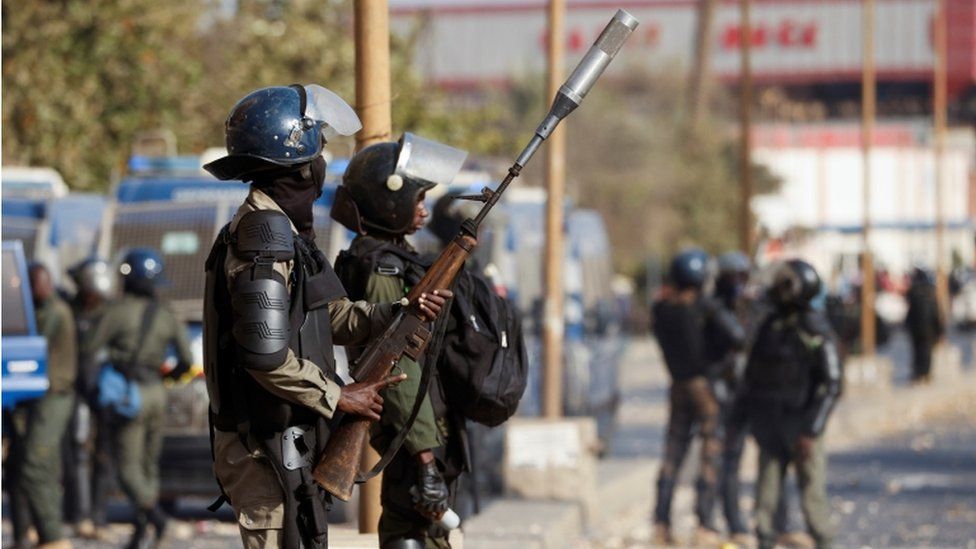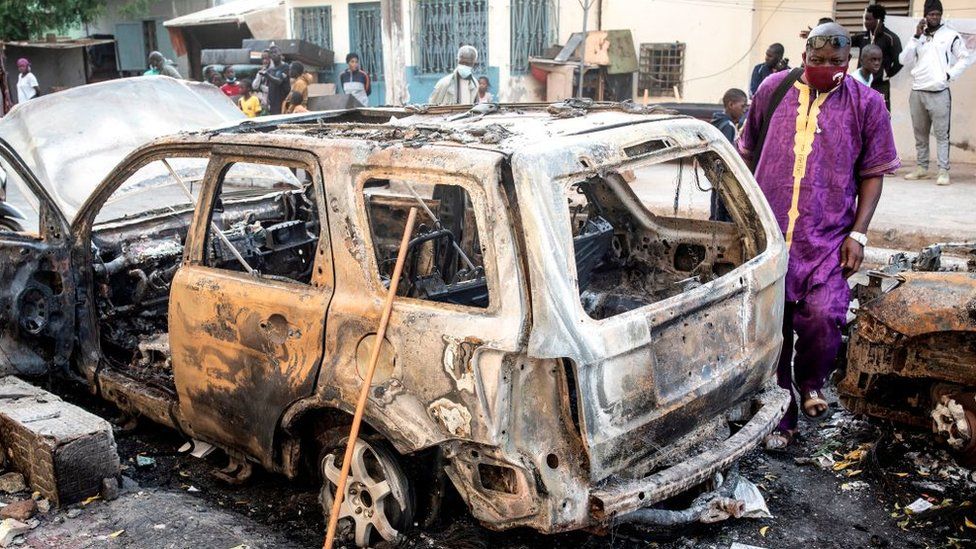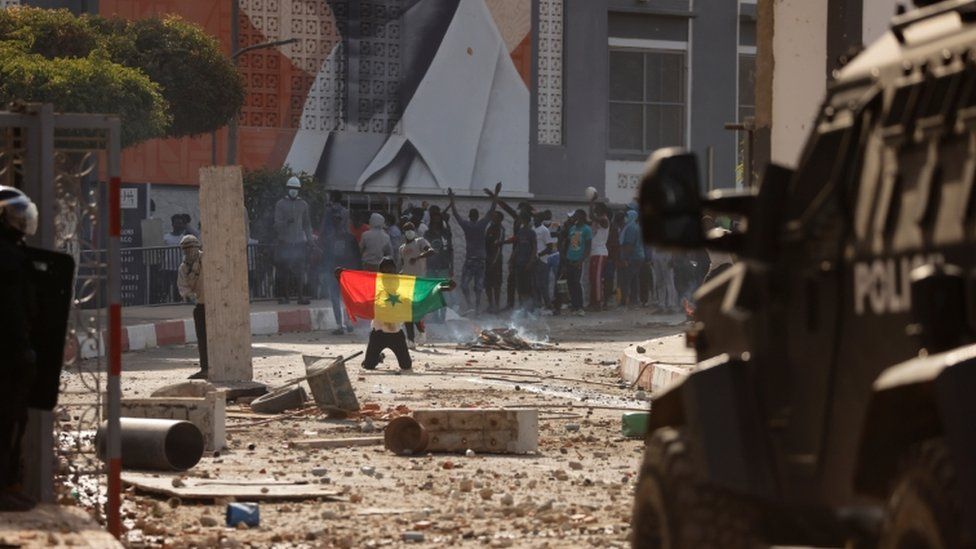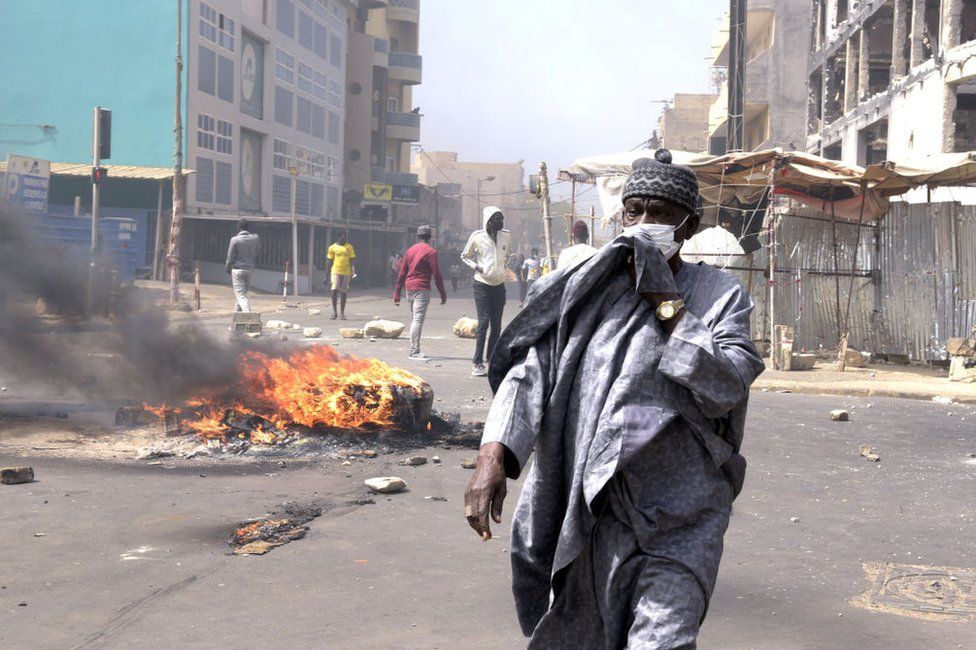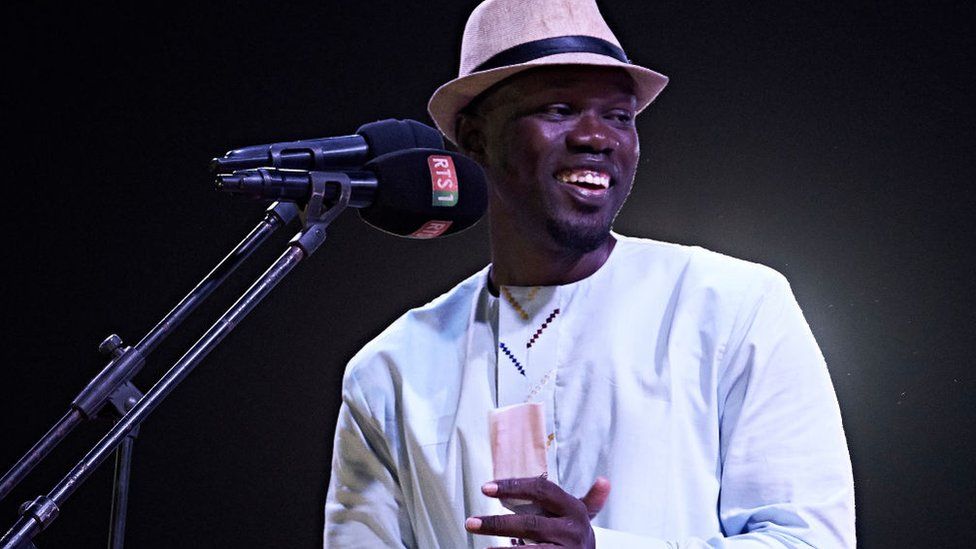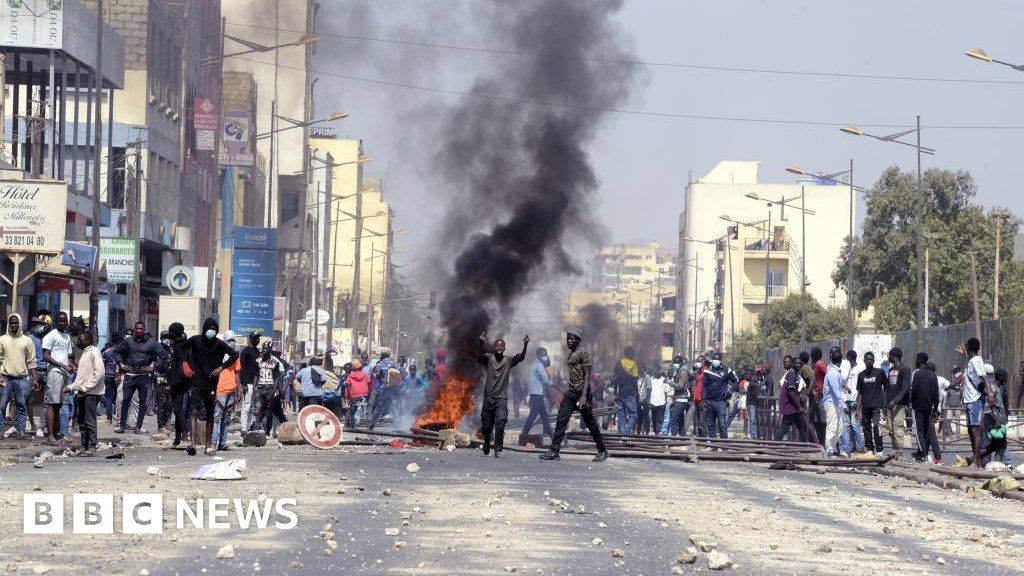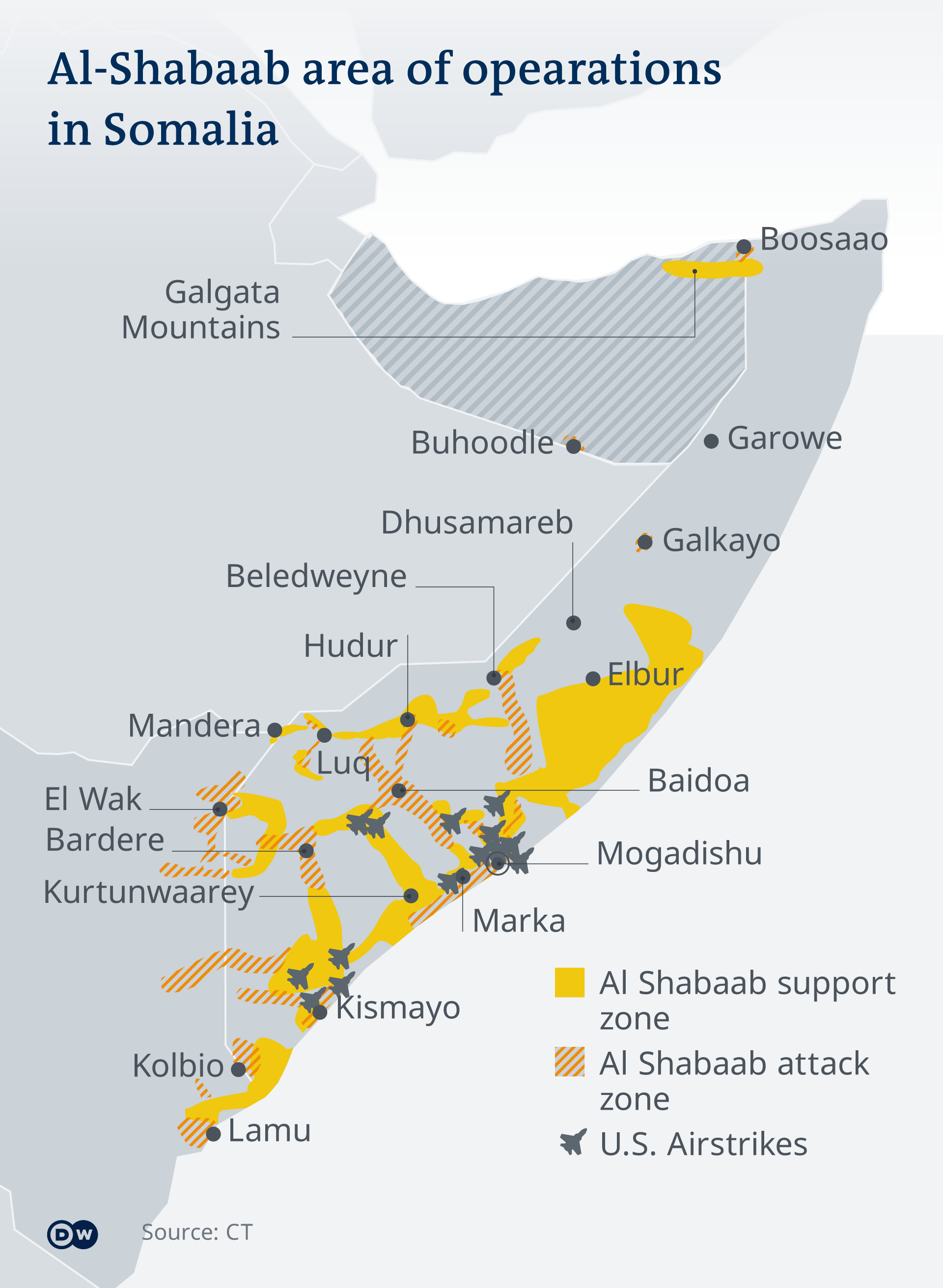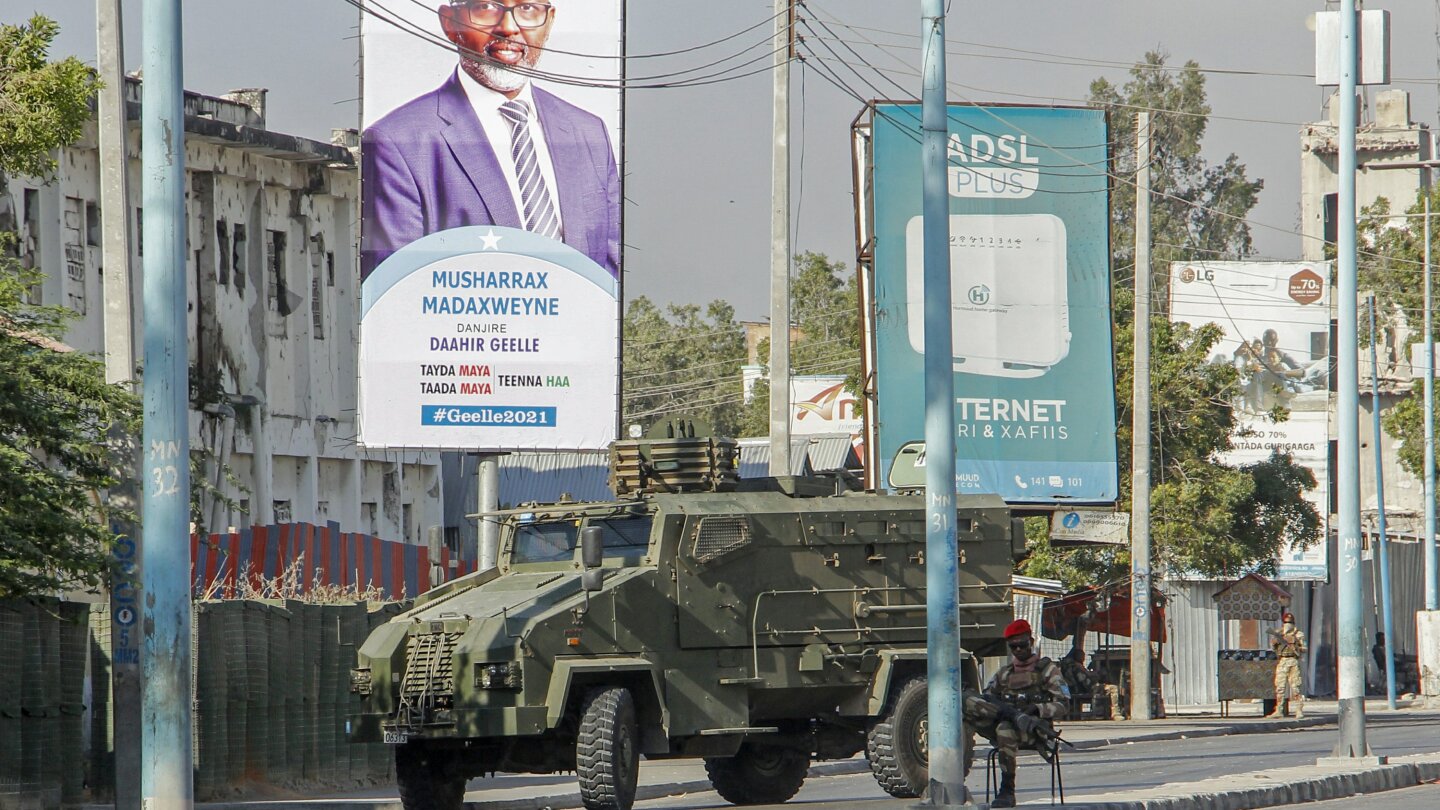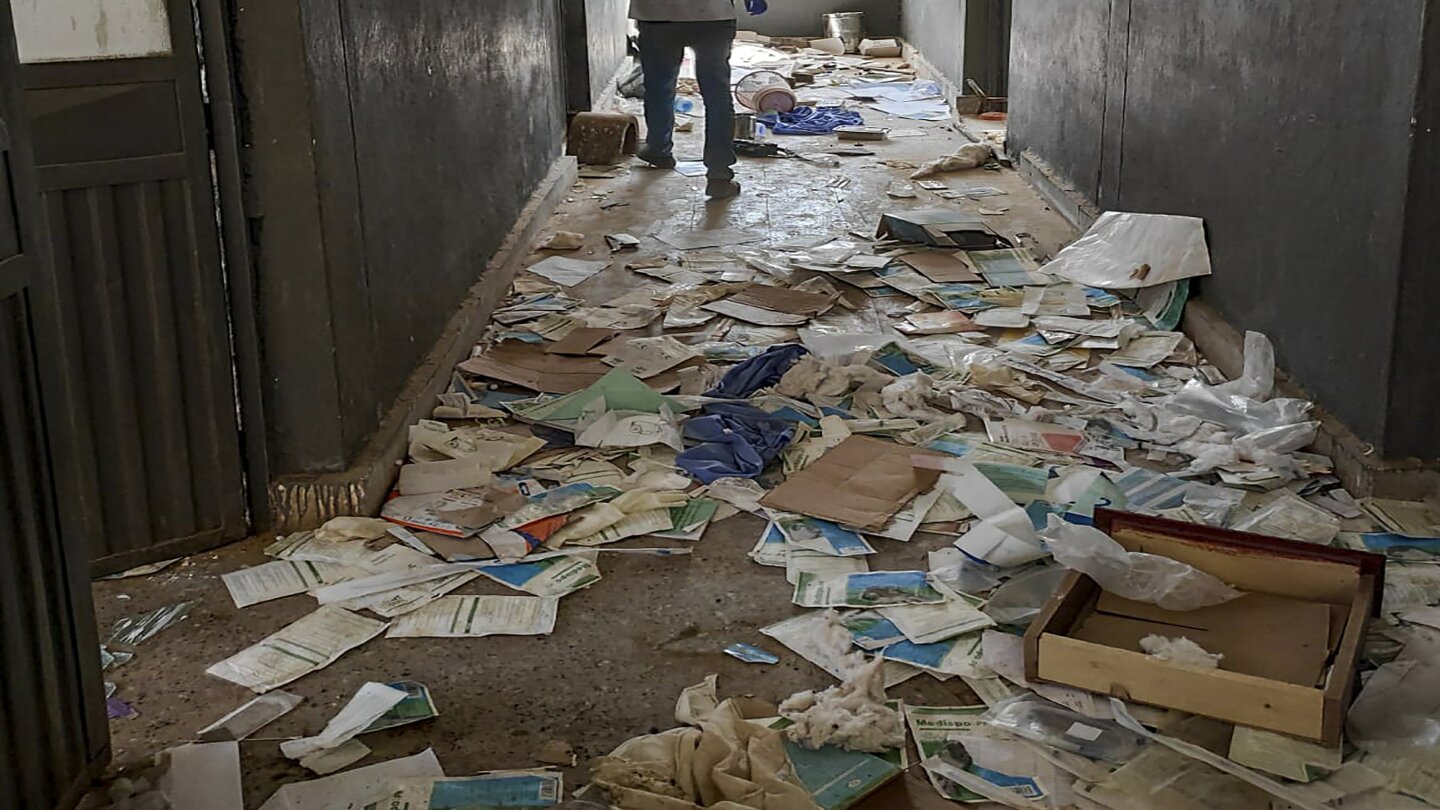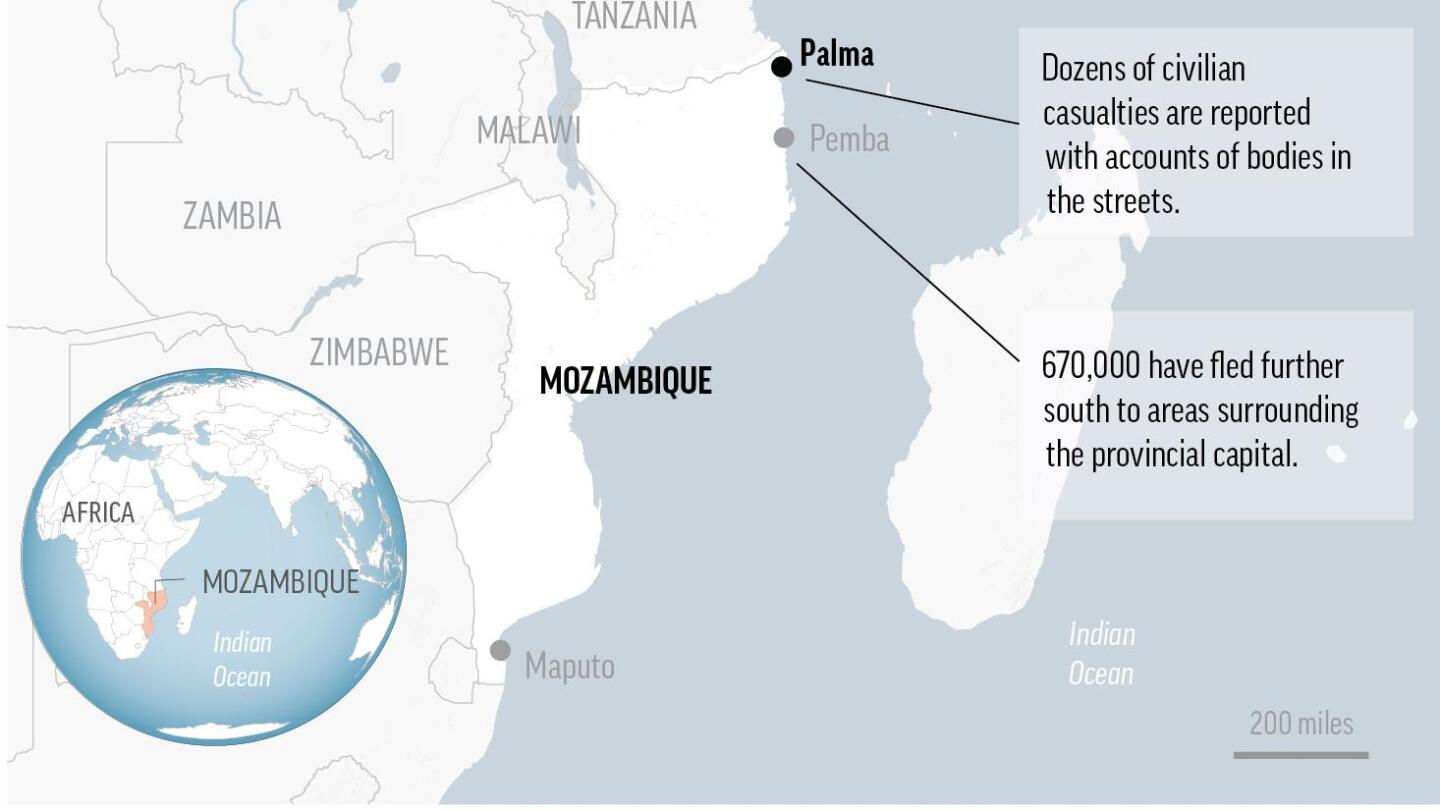Plain Jane
Just Plain Jane
February's thread is here:
Conflict in Mediterranean thread here beginning page 71:
WAR - Regional conflict brewing in the Mediterranean
Main Coronavirus thread beginning page 1333 is here:
 www.timebomb2000.com
www.timebomb2000.com
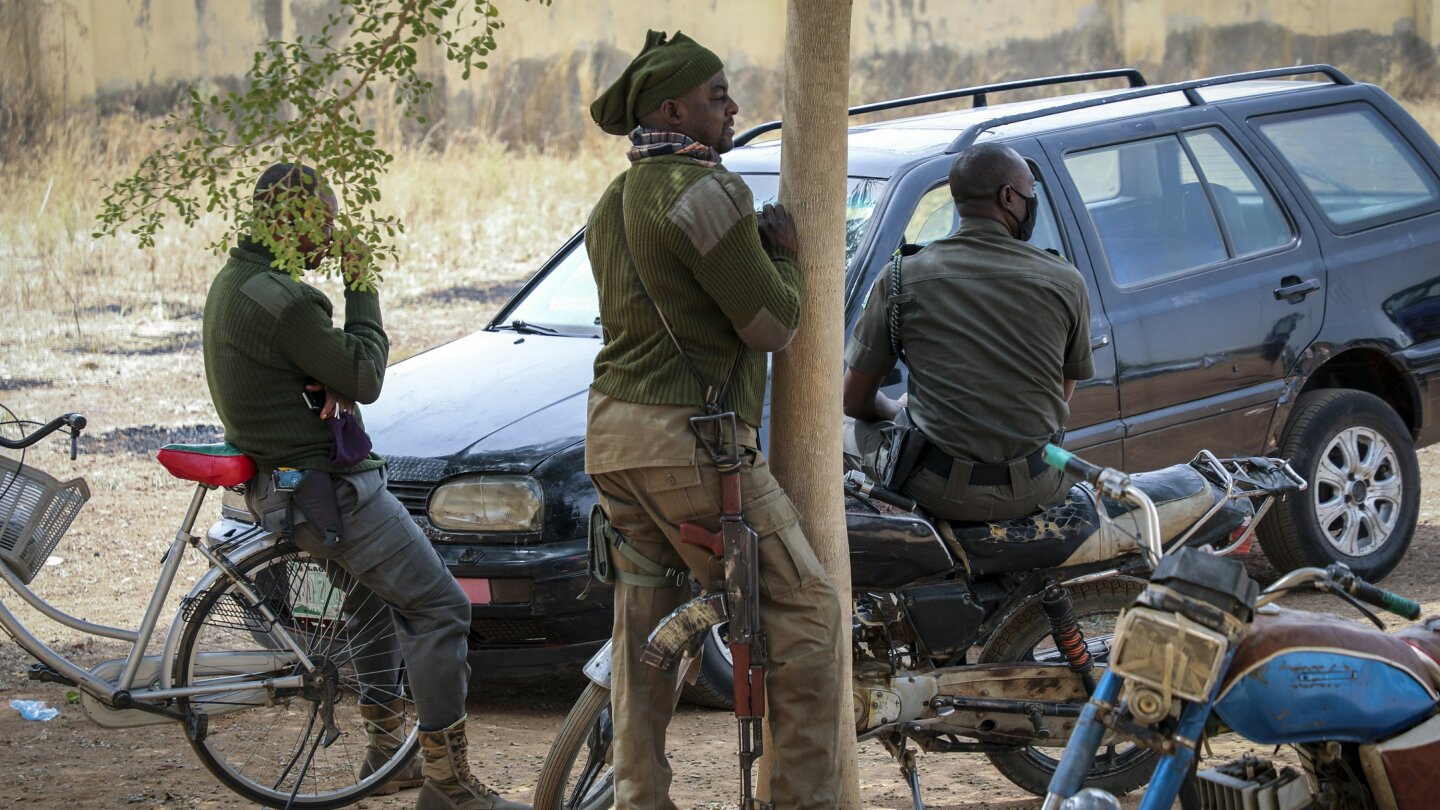
 apnews.com
apnews.com
Click to copy
Nigerian families await news of 300 kidnapped schoolgirls
By IBRAHIM MANSURyesterday

1 of 13
Father Aliyu Ladan Jangebe, whose four daughters are among more than 300 girls who were abducted by gunmen on Friday from the Government Girls Junior Secondary School, waits for news in Jangebe town, Zamfara state, northern Nigeria Sunday, Feb. 28, 2021. Families in Nigeria waited anxiously on Sunday for news of their abducted daughters, the latest in a series of mass kidnappings of school students in the West African nation. (AP Photo/Ibrahim Mansur)
JANGEBE, Nigeria (AP) — Families in Nigeria waited anxiously for news of their abducted daughters after more than 300 schoolgirls were kidnapped by gunmen from a government school in the country’s north last week, the latest in a series of mass school kidnappings in the West African nation.
Worried parents on Sunday gathered at the school, guarded by police. Aliyu Ladan Jangebe said his five daughters aged between 12 and 16 were at the school when the kidnappers stormed in. Four were taken away but one escaped by hiding in a bathroom with three other girls, he told The Associated Press.
“We are not in (a) good mood because when you have five children and you are able to secure (just) one. We only thank God ... But we are not happy,” said Jangebe.
“We cannot imagine their situation,” he said of his missing daughters. Residents of a nearby village said the kidnappers had herded the girls through the town like animals, he said.
One resident said the gunmen also attacked a nearby military camp and checkpoint, preventing soldiers from responding to the mass abduction.
Nigerian President Muhammadu Buhari said the government’s priority is to get all the hostages returned safe and unharmed. Police and the military have begun joint operations to rescue the girls, said Mohammed Shehu, a police spokesman in Zamfara state.
The girls’ abduction has caused international outrage.
Pope Francis decried the kidnapping and prayed for the girls’ quick release, during his public address in St. Peter’s Square on Sunday.
“I pray for these girls, so that they may return home soon ... I am close to their families and to them,″ Francis said, asking people to join him in prayer.
Last week, U.N. Secretary-General Antonio Guterres strongly condemned the abductions and called for the girls’ “immediate and unconditional release” and safe return to their families. He called attacks on schools a grave violation of human rights and the rights of children, U.N. spokesman Stephane Dujarric said.
Nigeria has seen several such attacks and kidnappings in recent years. On Saturday, 24 students, six staff and eight relatives were released after being abducted on February 17 from the Government Science College Kagara in Niger state. In December, more than 300 schoolboys from a secondary school in Kankara, in northwestern Nigeria, were taken and later released. The government has said no ransom was paid for the students’ release.
The most notorious kidnapping was in April 2014, when 276 girls were abducted by the jihadist rebels of Boko Haram from the secondary school in Chibok in Borno state. More than 100 of those girls are still missing.
Boko Haram is opposed to western education and its fighters often target schools. Other organized armed groups, locally called bandits, often abduct students for money. The government says large groups of armed men in Zamfara state are known to kidnap for money and to press for the release of their members held in jail.
Nigeria’s criminal networks may plot more such abductions if this round of kidnappings go unpunished, say analysts.
“While improving community policing and security in general remains a mid-to-long-term challenge, in the short term authorities must punish those responsible to send a strong message that there will be zero tolerance toward such acts,” said Rida Lyammouri, senior fellow at the Policy Center for the New South, a Moroccan based think tank.
Conflict in Mediterranean thread here beginning page 71:
WAR - Regional conflict brewing in the Mediterranean
Main Coronavirus thread beginning page 1333 is here:
CORONA - Main Coronavirus thread
View: https://www.youtube.com/watch?v=qDfnkNhpXiw 24:52 min Coronavirus Update 122: The Research So Far on COVID-19 and Vaccines vs. Pregnancy •Feb 15, 2021 MedCram - Medical Lectures Explained CLEARLY Professor Roger Seheult, MD discusses the impacts of COVID 19 on pregnant women, and...

Nigerian families await news of 300 kidnapped schoolgirls
JANGEBE, Nigeria (AP) — Families in Nigeria waited anxiously for news of their abducted daughters after more than 300 schoolgirls were kidnapped by gunmen from a government school in the country's north last week, the latest in a series of mass school kidnappings in the West African nation.
Click to copy
Nigerian families await news of 300 kidnapped schoolgirls
By IBRAHIM MANSURyesterday

1 of 13
Father Aliyu Ladan Jangebe, whose four daughters are among more than 300 girls who were abducted by gunmen on Friday from the Government Girls Junior Secondary School, waits for news in Jangebe town, Zamfara state, northern Nigeria Sunday, Feb. 28, 2021. Families in Nigeria waited anxiously on Sunday for news of their abducted daughters, the latest in a series of mass kidnappings of school students in the West African nation. (AP Photo/Ibrahim Mansur)
JANGEBE, Nigeria (AP) — Families in Nigeria waited anxiously for news of their abducted daughters after more than 300 schoolgirls were kidnapped by gunmen from a government school in the country’s north last week, the latest in a series of mass school kidnappings in the West African nation.
Worried parents on Sunday gathered at the school, guarded by police. Aliyu Ladan Jangebe said his five daughters aged between 12 and 16 were at the school when the kidnappers stormed in. Four were taken away but one escaped by hiding in a bathroom with three other girls, he told The Associated Press.
“We are not in (a) good mood because when you have five children and you are able to secure (just) one. We only thank God ... But we are not happy,” said Jangebe.
“We cannot imagine their situation,” he said of his missing daughters. Residents of a nearby village said the kidnappers had herded the girls through the town like animals, he said.
One resident said the gunmen also attacked a nearby military camp and checkpoint, preventing soldiers from responding to the mass abduction.
Nigerian President Muhammadu Buhari said the government’s priority is to get all the hostages returned safe and unharmed. Police and the military have begun joint operations to rescue the girls, said Mohammed Shehu, a police spokesman in Zamfara state.
The girls’ abduction has caused international outrage.
Pope Francis decried the kidnapping and prayed for the girls’ quick release, during his public address in St. Peter’s Square on Sunday.
“I pray for these girls, so that they may return home soon ... I am close to their families and to them,″ Francis said, asking people to join him in prayer.
Last week, U.N. Secretary-General Antonio Guterres strongly condemned the abductions and called for the girls’ “immediate and unconditional release” and safe return to their families. He called attacks on schools a grave violation of human rights and the rights of children, U.N. spokesman Stephane Dujarric said.
Nigeria has seen several such attacks and kidnappings in recent years. On Saturday, 24 students, six staff and eight relatives were released after being abducted on February 17 from the Government Science College Kagara in Niger state. In December, more than 300 schoolboys from a secondary school in Kankara, in northwestern Nigeria, were taken and later released. The government has said no ransom was paid for the students’ release.
The most notorious kidnapping was in April 2014, when 276 girls were abducted by the jihadist rebels of Boko Haram from the secondary school in Chibok in Borno state. More than 100 of those girls are still missing.
Boko Haram is opposed to western education and its fighters often target schools. Other organized armed groups, locally called bandits, often abduct students for money. The government says large groups of armed men in Zamfara state are known to kidnap for money and to press for the release of their members held in jail.
Nigeria’s criminal networks may plot more such abductions if this round of kidnappings go unpunished, say analysts.
“While improving community policing and security in general remains a mid-to-long-term challenge, in the short term authorities must punish those responsible to send a strong message that there will be zero tolerance toward such acts,” said Rida Lyammouri, senior fellow at the Policy Center for the New South, a Moroccan based think tank.
Last edited:






